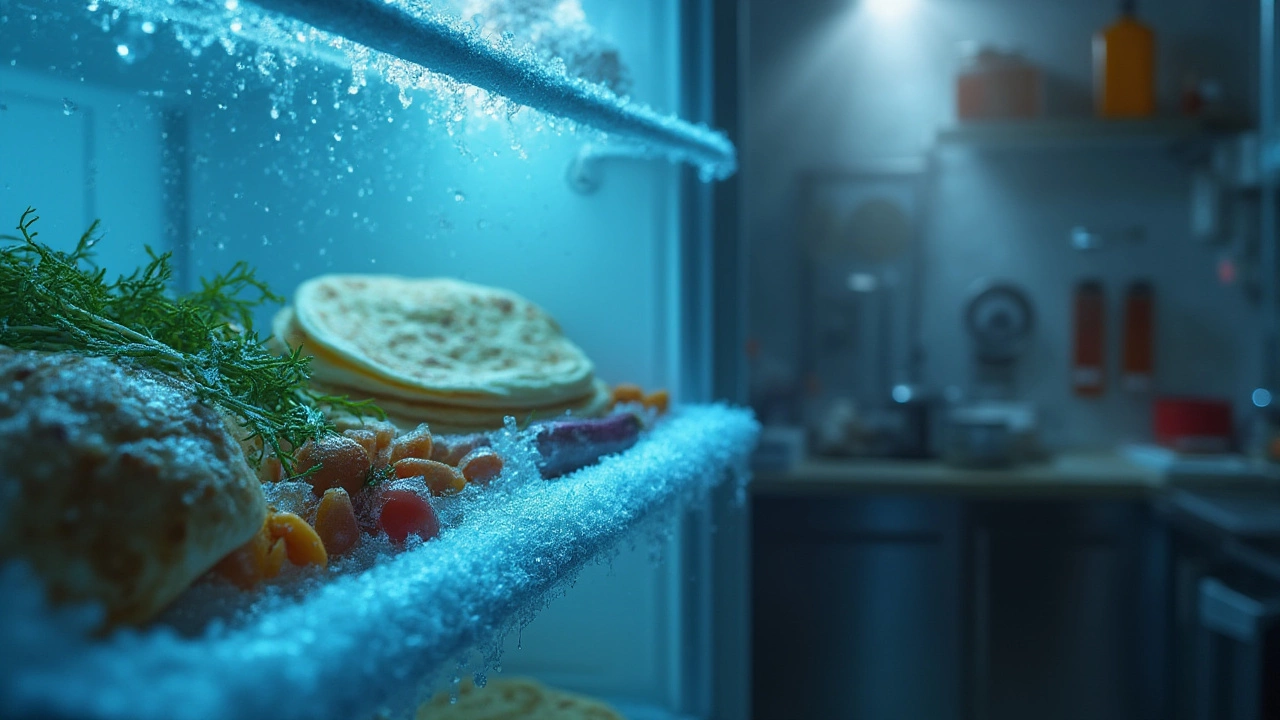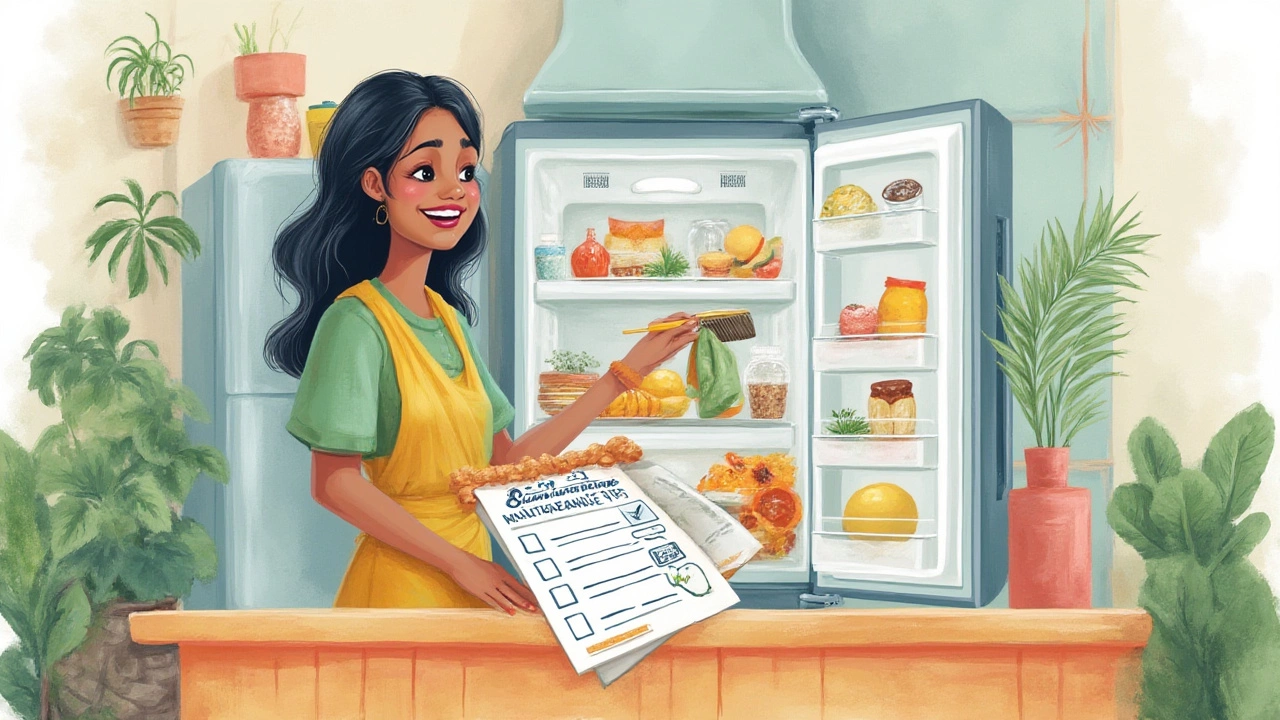
How many years do you really expect your freezer to stick around? It’s one of those appliances you probably don’t think about until there’s a puddle on the floor or your late-night ice cream looks more like soup. Freezers certainly aren’t invincible, though most will quietly work away for years. But how long is ‘normal’, and is there anything you can do to extend its life?
What’s the Typical Lifespan of a Freezer?
Let’s set the record straight: freezers last longer than you might think. If yours kicked the bucket after a handful of years, you might have been unlucky or bought a dud. Manufacturers and appliance pros often say a typical freezer (upright or chest) lasts anywhere from 12 to 20 years. Big range, right? The average, though, lands at around 15 years. That’s if you treat it right—not treating it like a punchbag, not blocking the vents, and keeping the coils clean.
Now, not all freezers are the same. Chest freezers tend to outlast upright ones. A chest freezer has a simple design, fewer moving parts, and a tight seal. Upright models, sure, are convenient for storage, but their frost-free features and design quirks make them a little more finicky. You might get twelve years from an upright, a solid fifteen or more from a chest style, and hey, some people have old chest freezers from the ‘80s still humming away in their basements. But don’t take that as a guarantee—those are the lucky few.
You also want to think about how much use (and abuse) your freezer takes. Families with teenage boys know their freezer doors probably open 20 times a day. Frequent opening, temperature spikes, crammed shelves, or power outages all chip away at lifespan. Location plays a part, too. Put your freezer in a hot garage in Texas and you'll probably need to replace it way sooner than if it sits in a cool basement in Minnesota. Heat is an enemy to all things cool, literally. Don’t be surprised if those garage models struggle after 7 to 10 years in punishing heat. If your freezer has to work overtime, the compressor’s going to wear itself out fast.
Digging into some specifics: A 2024 survey by the Association of Home Appliance Manufacturers found that the average freezer (combining both upright and chest models) runs about 14.5 years before people replace it. But, half of the new units sold were to people replacing older, still-working freezers—they just wanted lower energy bills and quieter appliances. That’s a big factor. Today’s Energy Star models use maybe half the power of a 2008 dinosaur, so if your wallet and conscience hurt every time you see your electricity bill, newer might be better, even if your old freezer’s still working.
Let’s put some numbers in a table for quick reference:
| Freezer Type | Average Lifespan (Years) | Signs of Aging |
|---|---|---|
| Chest Freezer | 15-20 | Poor sealing, slow freezing, extra frost |
| Upright Freezer | 12-15 | Noisy operation, uneven temps, frost build-up |
| Built-in Freezer (Refrigerator combo) | 10-15 | Compressor noise, leaks, frost issues |
So, if you’re sitting on a freezer that’s pushing 12 years, keep an eye out for signs of trouble, but don’t feel pressured to toss it if it’s working just fine.

Factors That Affect How Long Your Freezer Lasts
Some freezers seem unkillable. Others don’t make it past the warranty. Why the difference? It’s all about how you treat your appliance—and a bit of luck thrown in. Here’s what really makes a difference:
- Usage Habits: Constantly opening the door? Letting the kids or roommates dig for popsicles with the door wide open? Each thaw-and-refreeze cycle strains the compressor. Try to keep the open-close routine quick, and keep doors shut tight. If you're just browsing for snacks, make up your mind before you open the door.
- Temperature Extremes: Stashing your freezer in a super-hot garage or, on the flip side, an unheated shed in the winter? Bad idea. Excessive heat means the motor runs all day. Subzero cold can freeze up moving parts and ruin the coolant. If you must keep it outside conditioned space, pick a model rated for “garage ready” or “climate zone” performance.
- Maintenance: Forget to clean the condenser coils? That’s like making your freezer run a marathon with a plastic bag over its head. Dirty coils mean poor heat flow, and the compressor works overtime. Pull your freezer away from the wall and vacuum behind/under it twice a year. Also, check seals—if they’re cracked or not sealing, fix them with a dab of petroleum jelly or replace the gasket.
- Level of Use: If your freezer sits half-empty, it’s more vulnerable to temperature changes. A full freezer holds temperature better because there’s less air to chill. But don’t overpack it—blocking vents makes the compressor grind and wears out the fan. Think Goldilocks: not too empty, not too full.
- Electrical Issues: Power surges or brownouts can fry the electronics and compressor. Invest in a surge protector, especially if your area is famous for storms or bad wiring.
- Model and Build Quality: Cheaper models really do tend to quit early. Components matter. Look for models with metal shelving (sturdier) rather than plastic, and see if reviews mention compressor reliability. Sometimes, splurging a bit upfront for a trusted brand pays off in years of headache-free storage.
One weird but true thing—sometimes an older, heavier freezer from the ‘90s outlasts a lightweight new one. Why? Older parts were often more robust. These days, energy efficiency is king, so appliances are lighter and sometimes less tough. But you can even the odds by not ignoring small issues. Catching a sticky door or weird humming early might save you the hassle and expense of a repair—or a whole new freezer.
How do you tell if your freezer is on its way out? Listen for strange noises: buzzing, clicking, constant running, or weird whirring that wasn’t there before. Is your ice cream soft? Are you seeing more frost or drips inside? Is your food freezer-burned even at the right temperature? Those are red flags. Another biggie: rising energy bills. An old compressor works harder, guzzling more juice. If your freezer’s older than 10-12 years and you see extra dollars on your bill every month, it could be your appliance begging for retirement.
Got pets? Pet hair disaster can clog up those coils, so if Fido and Fluffy live in your house, clean more often. And while it’s rare, pests like mice sometimes chew on wiring behind your appliance, especially if it’s out in the garage. Worth a quick peek if you’re dodging weird smells or mystery malfunctions.

How to Make Your Freezer Last Longer
Let’s face it: everyone would love to squeeze a few extra years out of their freezer. That’s less money on new appliances (and less hassle buying, hauling, and hooking them up). Here are some no-nonsense tips to keep your freezer humming longer:
- Defrost Regularly: If you don’t have a frost-free model, schedule a manual defrost once you see more than half an inch of frost. That keeps things efficient and wards off compressor strain.
- Don’t Jam It Full: Leave space around air vents inside so cold air can circulate. Overstuffing makes it work harder and can block sensors. Think of it like giving your freezer room to breathe.
- Set the Right Temperature: Factory default for most freezers is 0 degrees Fahrenheit (-18°C). Any colder is overkill, won’t freeze food any better, and just adds to wear and tear.
- Keep It Clean and Dry: Wipe up spills quickly (before they freeze or turn into sticky messes). At least once a year, do a deep clean: empty the freezer, unplug it, and scrub any gunk and crumbs. Don’t forget to clean behind the unit—dust back there can trap heat and stress the system.
- Check Seals and Gaskets: Every few months, test by closing the door on a dollar bill. If you can pull it out easily, your seal is shot. A good seal saves energy and keeps frost at bay.
- Surge Protection: A quick hardware store run could save you a world of pain. Plug your freezer into a quality surge suppressor, especially in old houses or storm-prone areas.
- Let Hot Food Cool First: Tempted to slide fresh leftovers straight into the freezer? Don’t do it! Let them cool on the counter first so you don’t spike the temperature inside.
- Strategic Stashing: Group similar items together. It makes finding things easy, shortens door-open time, and cuts down trips to dig for that one tray of chicken. Some folks even label their shelves.
If you do need to repair something—like a broken door latch, thermostat, or fan—sometimes it’s worth the cost. Compressor failure or major coolant loss? At that point, replacing the whole unit usually makes more sense.
Here’s some smart advice: if your freezer is 8 years or older and repair costs are more than half that of a new one, it’s probably time to let go. And, as you shop, look for freezer lifespan in online reviews. People love sharing about how long their freezers lasted, and you’ll spot trends with certain brands or models.
One more tip you don’t always hear: power outages. If your neighborhood loses juice regularly, keep an ice block or two in your freezer. (A big milk jug filled with water works great.) This helps hold the cold if the power cuts, reducing the risk of partial thaw and refreeze—which is rough on both your food and your freezer.
So, next time you hear that motor start up, take it as a little reminder to give your freezer a look. Fifteen years is a solid stretch for any appliance. A few smart habits can buy you even more—maybe not to the ‘80s, but probably a lot longer than you’d expect.